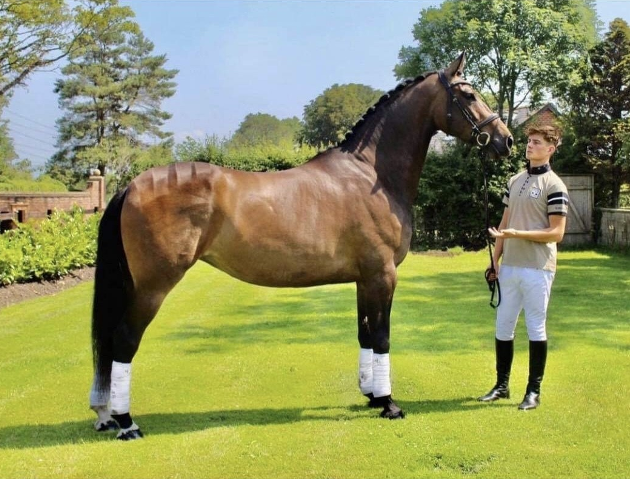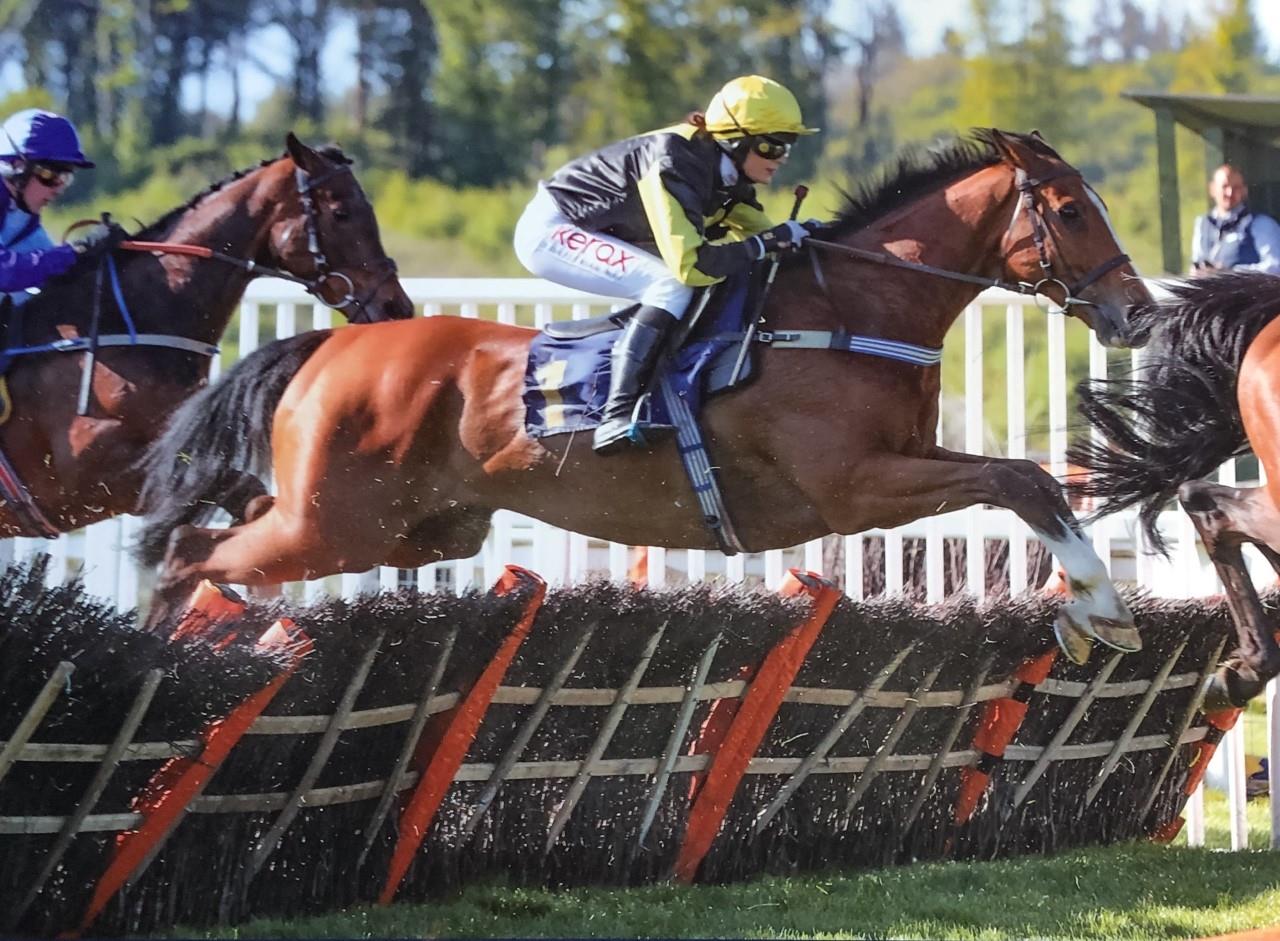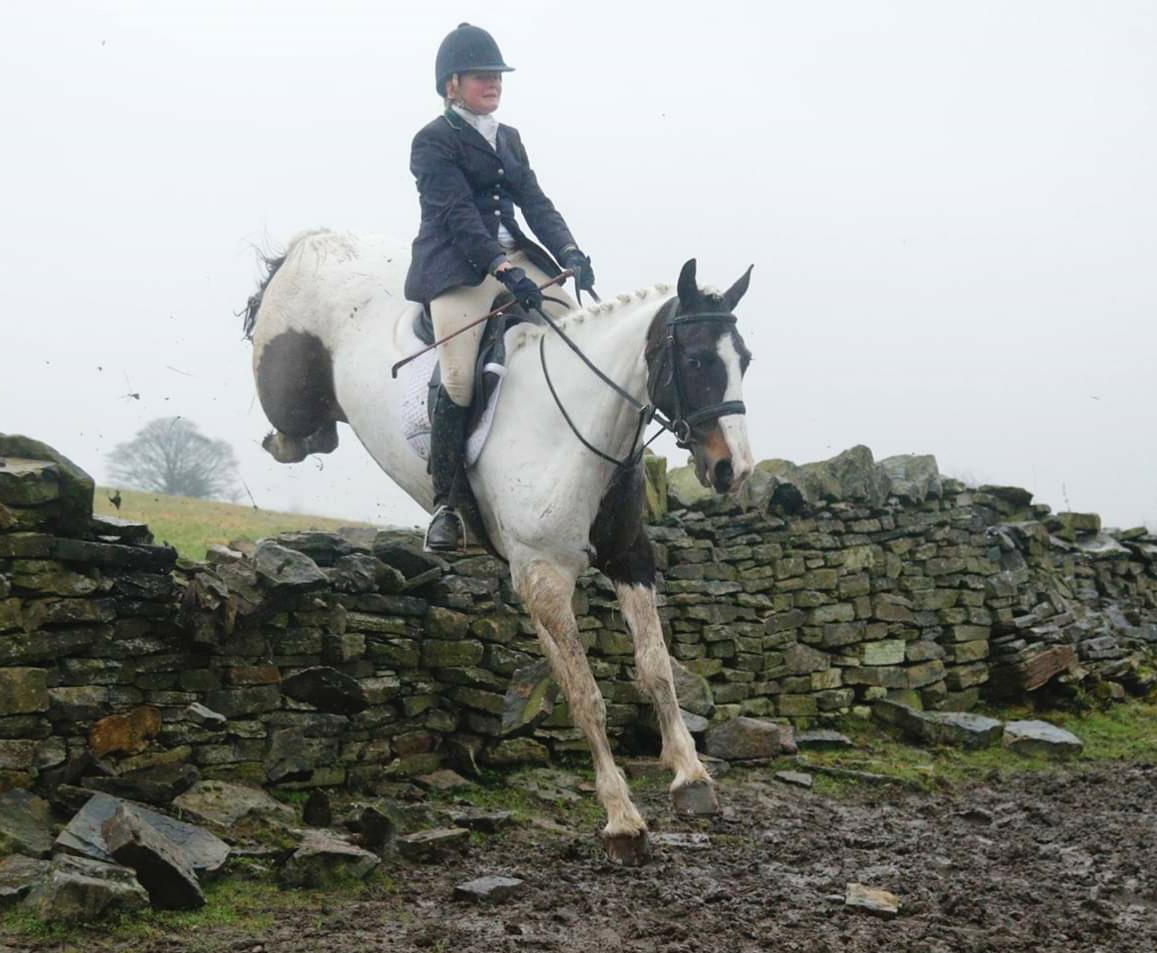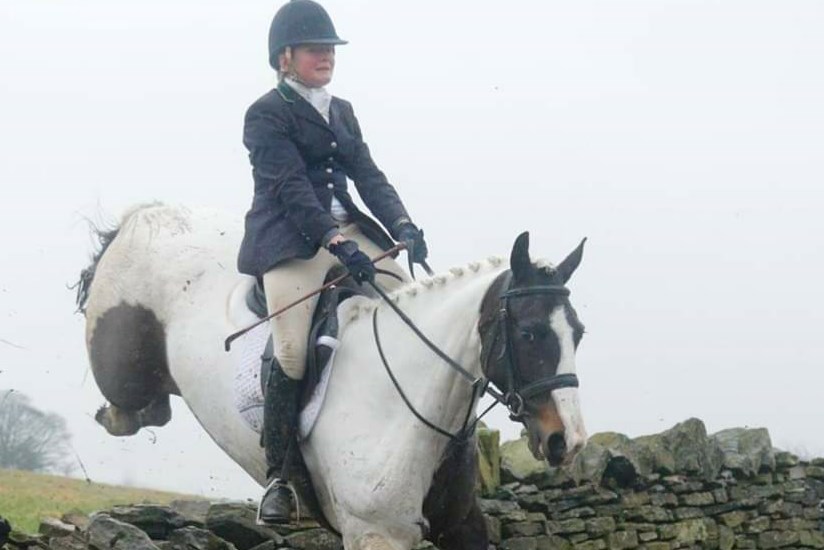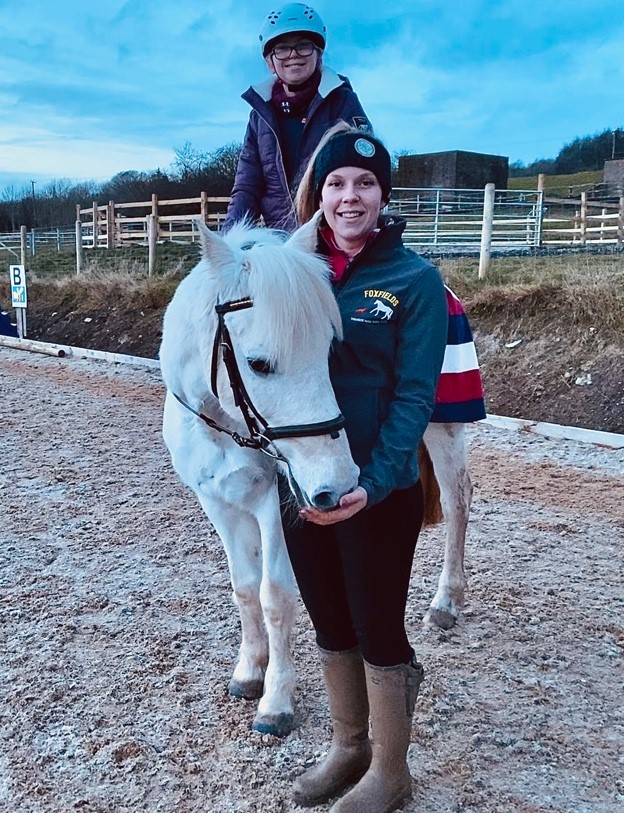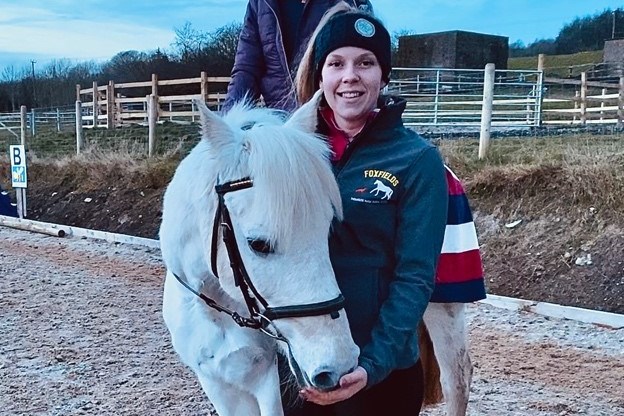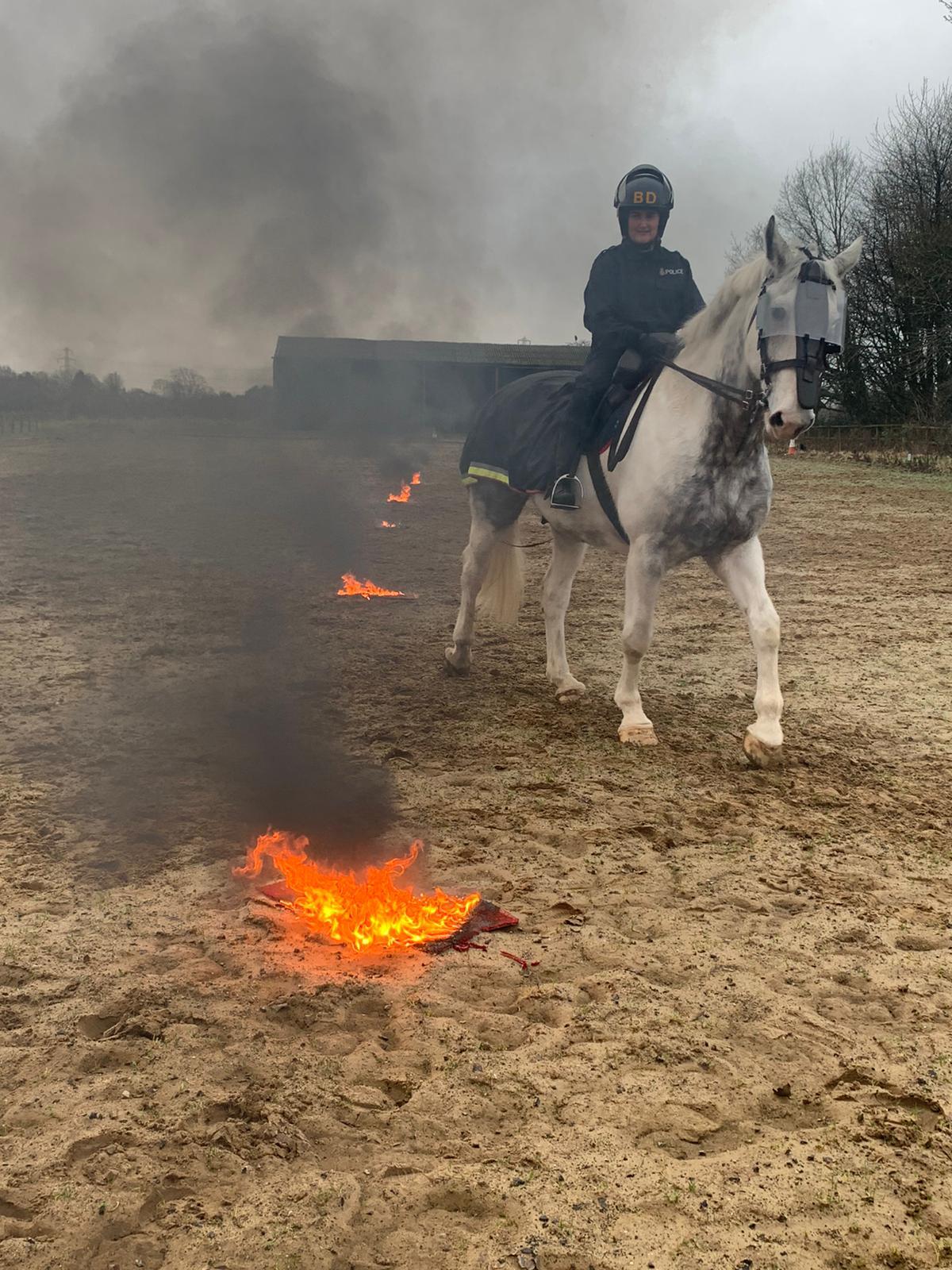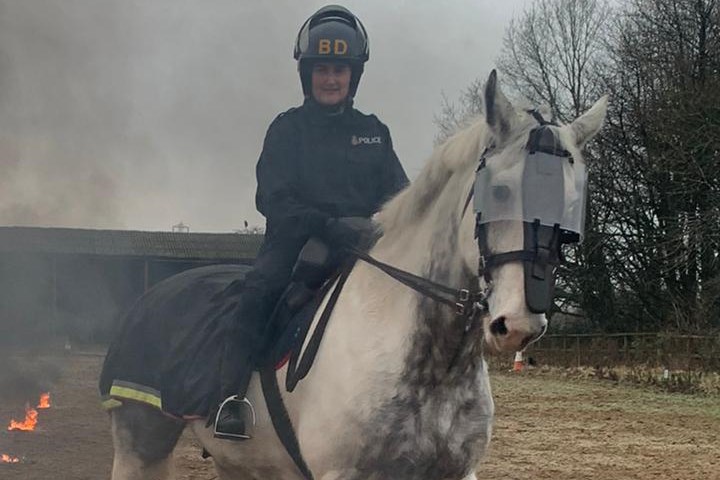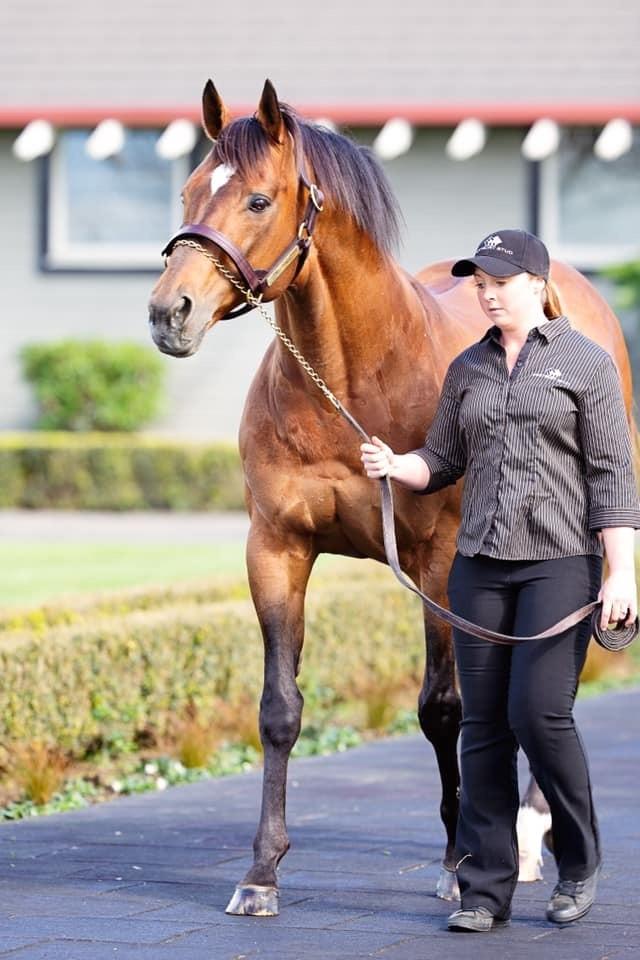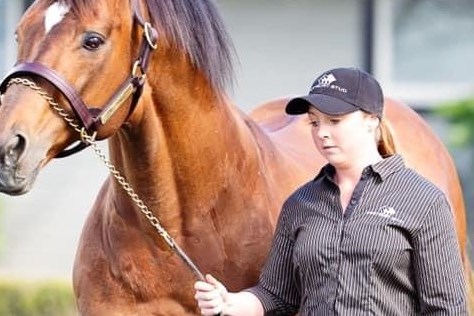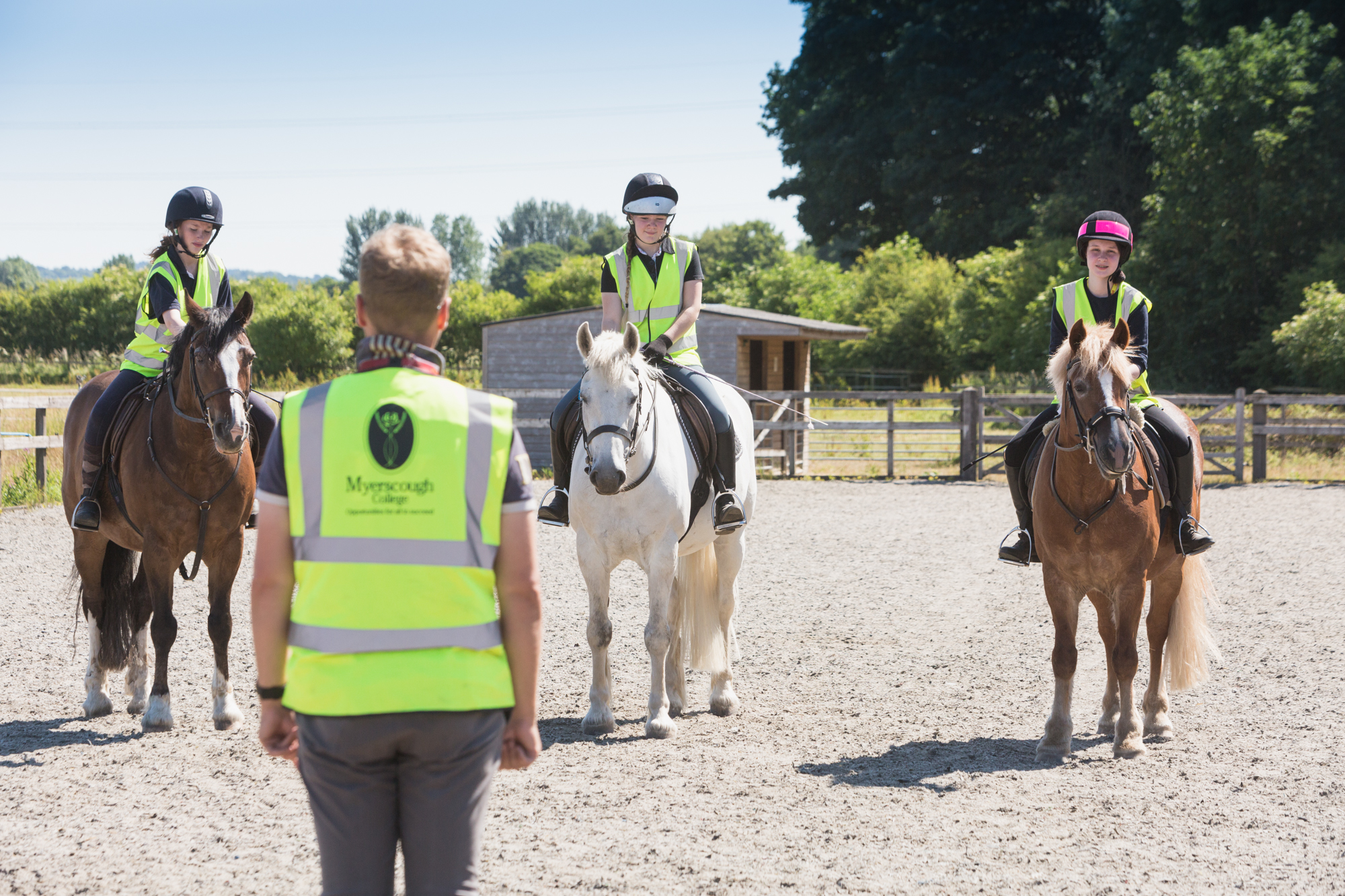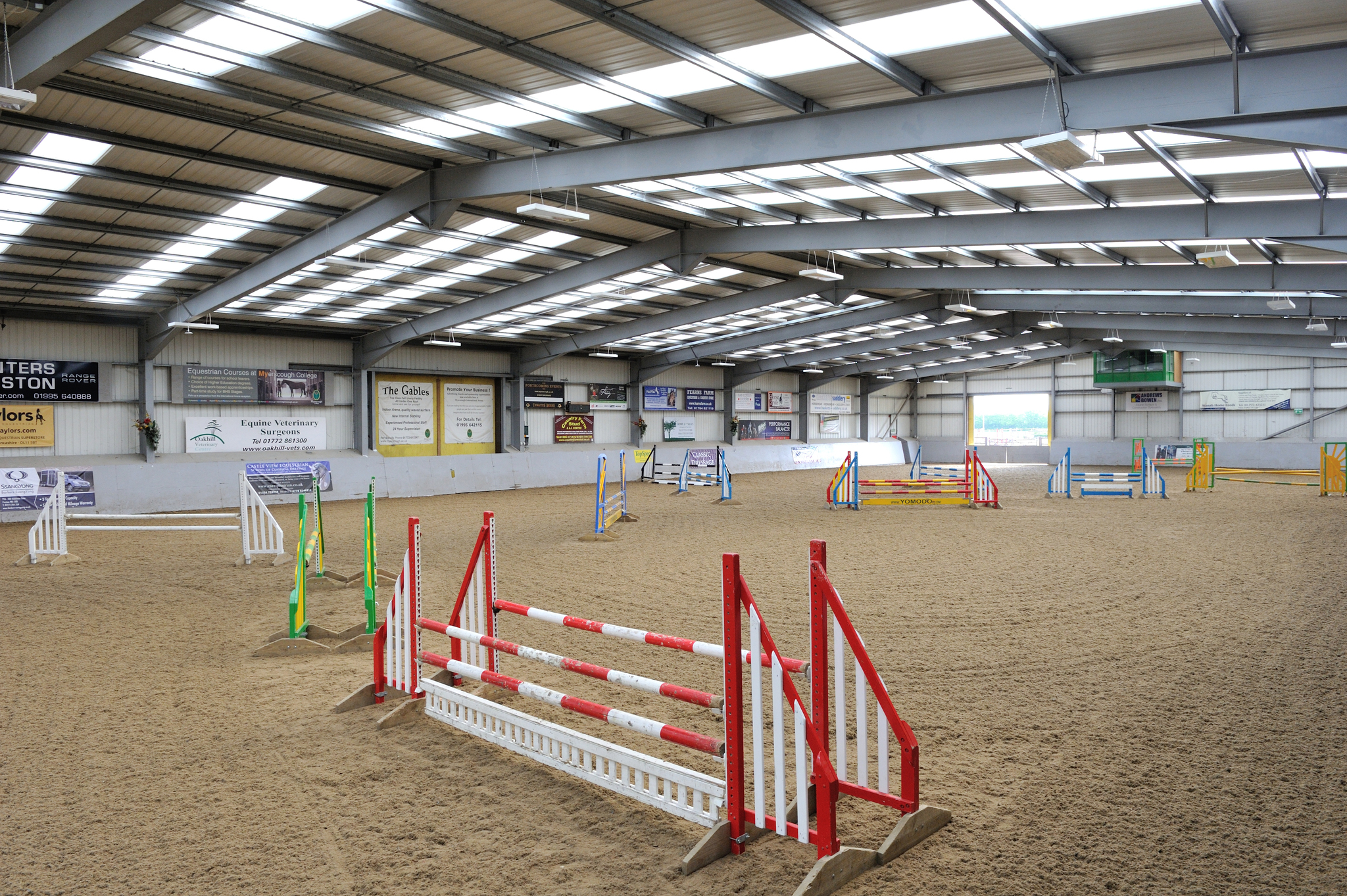Course modules
Year 1
The Principles of Feeding and Watering Horses
In this unit you will develop your practical and theoretical knowledge of feeding and watering horses.
Undertake Routine Stable Duties
This unit covers the daily care activities for the stabled and grass kept horse which includes mucking out, grooming, health checks, feeding, watering and the wide range of general yard tasks.
Introduction to Lungeing Horses
In this unit, you will focus on lungeing, which is a way of working horses from the ground. You will develop your practical ability and knowledge of exercising horses using different methods.
Assisting with the Transportation of Horses (Behaviour route)
This unit aims to provide learners with an understanding of the principles of transporting horses and how these can be applied in practice.
Riding Horses under Supervision (Riding Route)
This unit covers the basics of riding horses on the flat. The learner will be able to prepare horses for ridden exercise, including adjusting the girth and stirrups. The learner will demonstrate a balanced riding position in walk, trot and canter. The learner will also know how to ride safely on the road
Health and Safety for Land-based Industries
The purpose of this unit is for learners to understand the principles and importance of health and safety within land-based settings. This unit covers health and safety legalisation which provides the requirements upon which policies and procedures within the industry are based. This unit also introduces learners to the basic requirements of fire prevention, safe manual handling and basic first aid
Equine Health and Welfare
The purpose of this unit is for learners to have an understanding of the principles of equine health and welfare and how these can be applied in practice
Working in the Equine Industry
Within this unit, you will start to investigate the employment opportunities available to you within the equine industry. You will look at self-development and how to prepare yourself for employment whilst developing your practical skills.
Horse Handling and Grooming
In this unit you will learn to safely handle horses along with an understanding of the importance of restraining horses in a range of situations.
Horse Tack and Equipment
Within this unit you will apply an assortment of horse clothing and tack in addition to developing an understanding of the importance of maintaining the good condition of tack and equipment.
Principles of Horse Behavior (Behaviour route)
This unit aims to provide you with an understanding of the principles of horse behaviour and how these can be applied in practice.
Riding and Exercising Horses (Riding route)
This unit aims to equip learners with an understanding of the principles of riding horses on the flat.
Entry requirements & additional information
Entry requirements
This course covers practical skills and relevant background knowledge. Students are normally aged 16 or over and the following qualifications are needed:
3 GCSEs at Grade 3 (D) or equivalent, including English, Maths and Science (or related subject).
(Check FE Admission guide for changes and equivalencies)
Please note there is a maximum weight limit of 14.5 stone for the riding units.
Learning and assessment
Assessment of technical qualifications is a mixture of internal practical assessment of skills conducted by the teaching team, internal written assignments marked by the teaching team, an externally set synoptic examination that combines the knowledge and practical skills of all of the mandatory units, an external online exam that combines the knowledge of all mandatory units and an online health and safety exam. The assessments and exams are spread throughout the year.
Additional Qualifications:
¨ Learn to Work.
Progression
Level 2 students can progress to level 3 programmes subject to published entry requirements and satisfactory performance at level 2.
Careers
Employment opportunities in equine and its related industries are currently very good. Former students have become grooms, stable yard assistants and apprentices.
Special requirements
Costs that are mandatory for the course:
Specialist Clothing and Equipment: approx £100
- Plain navy blue or black jodhpurs
- College sweatshirt/ polo shirt in navy/ black, or similar plain sweatshirt/ polo shirt
- Navy or black jacket (warm and waterproof advised)
- Boots for yard work – wellingtons or strong boots
- Riding hat to current standard PAS015 or BSEN1384 along with the Kitemark
- Gloves and hairnet
- Riding boots or leather gaiters (suede chaps are not allowed as they rub the horse’s sides)
- Jumping whip and schooling whip
- Back protector is compulsory for jumping lessons
- (Hooded jumpers, bright or garish clothing is not acceptable on the yards).
- Resources and Facilities Contribution, approximately £95 Preston (subject to change).
Costs that are optional for the course:
Students will be given the opportunity to participate in enrichment activities throughout the duration of the course. For example:
- Horse of the Year Show £35
- WHW £5
- Badminton Horse Trials £150
Work experience
All students are required to undertake a minimum of two weeks of external work experience placement as part of their course. This is a core part of the course and ensures that all students are putting their skills into practice within the work place. Support is available to find a suitable placement and placements must have employers and public liability insurance.
Stable Yard Practical
Students will gain work experience on the College Yard and at the Preston Centre will be required to attend weekend duties where they will care for the horses one weekend in five. A rota is produced at the start of the year with the students allocated weekend yard for the entire academic year.
Students also work on the yard, looking after the college horses, one day per week within their normal timetabled hours.
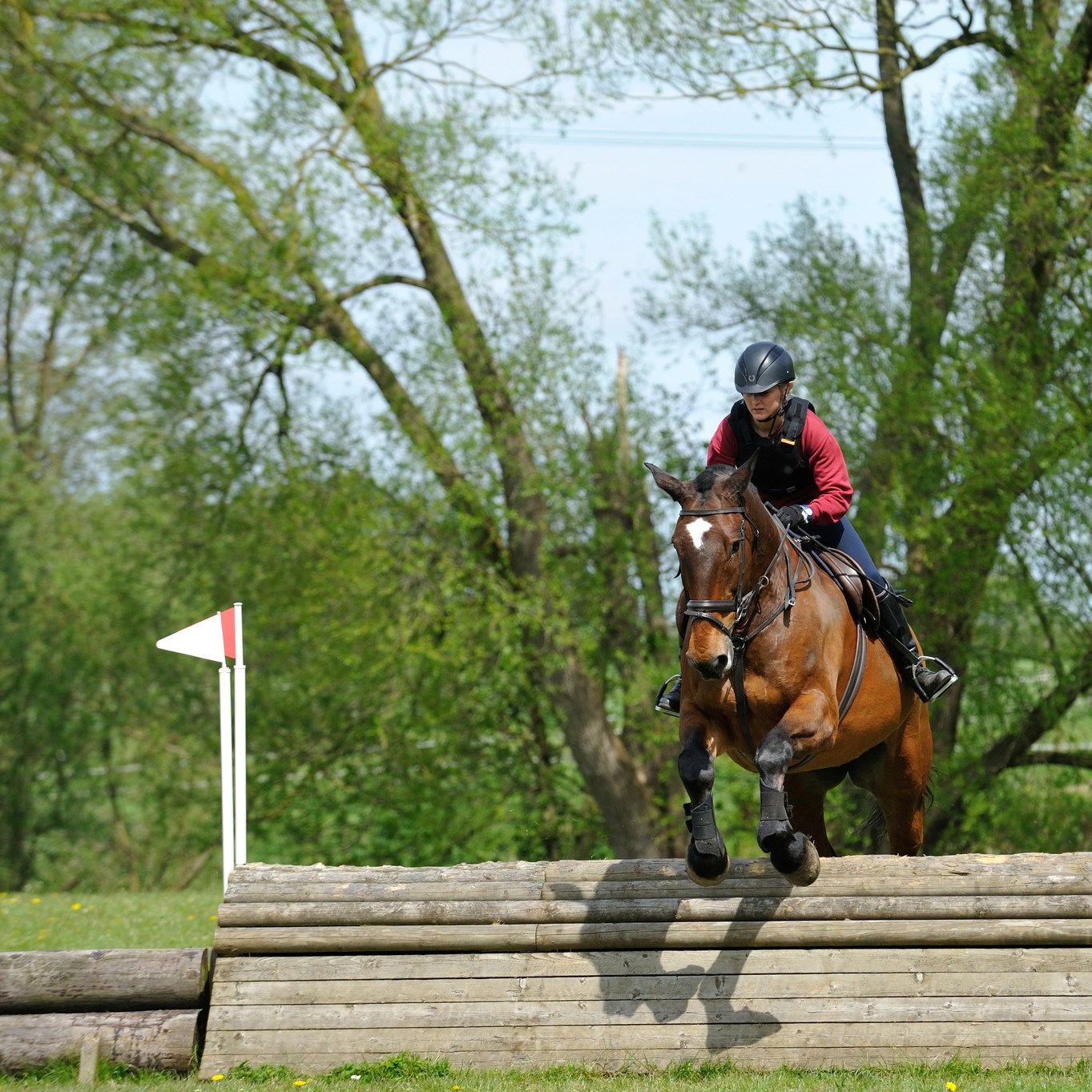
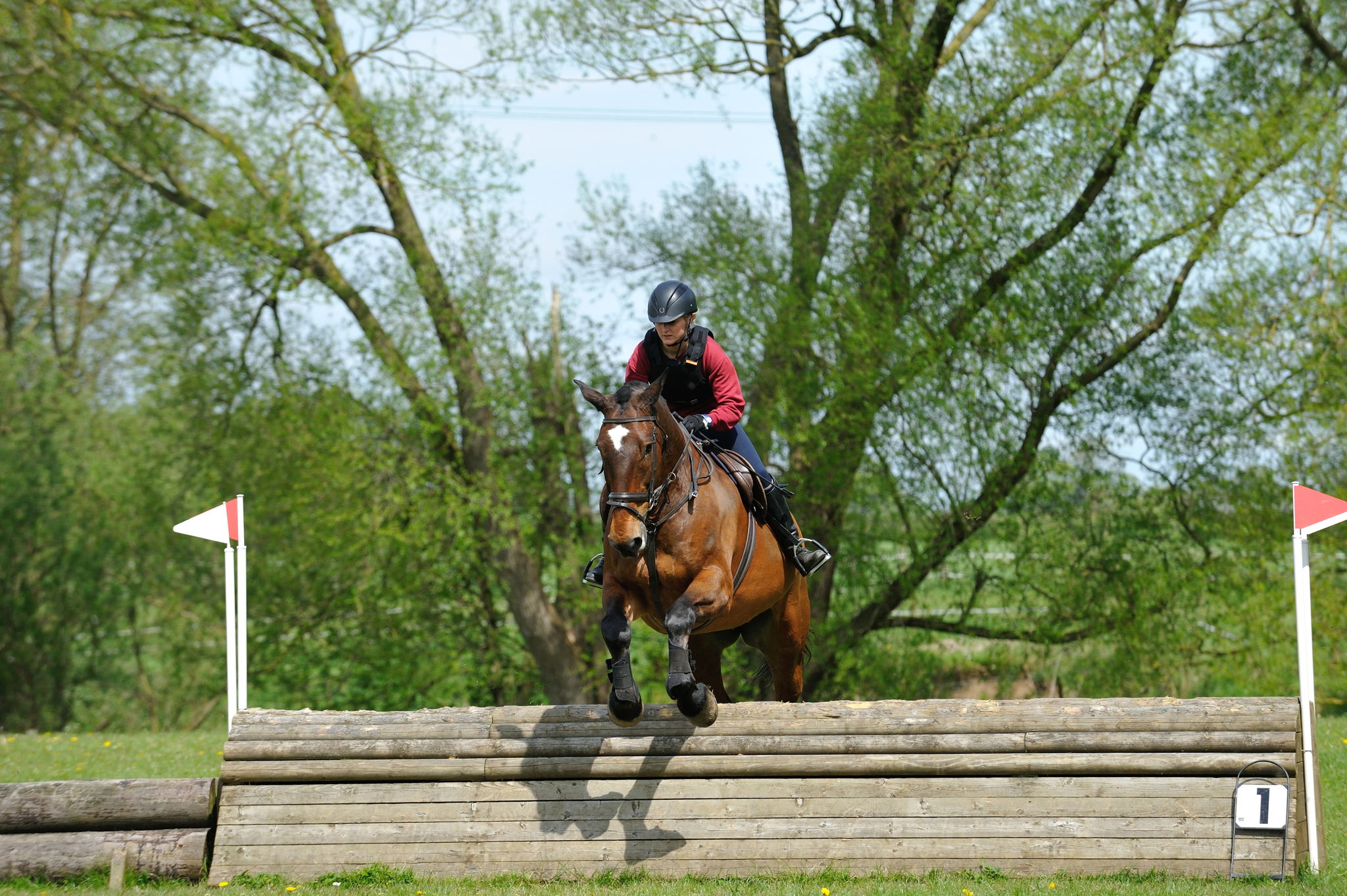
Latest news, Equine studies
-
Degree students present research at national conference
- Published
- Friday 10 May
-
Degree students share their research projects at Graduate Showcase
- Published
- Friday 26 April
-
Myerscough College to welcome European Champion Dressage star for masterclass event
- Published
- Thursday 22 February
-
Higher education Research Expo a success
- Published
- Friday 17 Nov 2023
-
Equine degree students present research at national conference
- Published
- Thursday 11 May 2023
